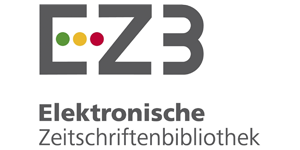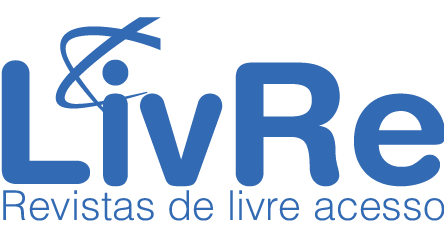About the Journal
Focus and Scope
The UNESP Journal of Legal Studies (eISSN 2179-5177), Qualis-Journals A2, is an online academic publication, published semiannually, with continuous submission. It is linked to the UNESP Graduate Program in Law and publishes legal articles, book reviews of works less than two years in the editorial market, and translations of unpublished articles.
It is the result of the PPG's concern with sharing and building critical, original, and innovative legal knowledge about different social phenomena and the frequent questioning of research methods and techniques. It is a production that enables the strengthening and respect for human rights and fundamental freedoms based on the following thematic axes, vectors to which submissions must adhere and that guide its editorial line:
- Civil and Political Citizenship and Normative Systems;
- Social and Economic Citizenship and Normative Systems;
- Protection and Effectiveness of Citizenship Rights.
It also aims to reach and serve the community of legal researchers and to convey the gains of scientific production to society, opening a channel of dialogue on issues impacting the legal experience. These objectives are achievable through a commitment to quality and integrity, values that guide its editorial policy in the combination of epistemic variables of scientific, ethical, social, and political order.
Evaluation Process
Articles, reviews, and translations submitted to UNESP Journal of Legal Studies are received under the following conditions:
- The manuscript has not been published and is not being simultaneously submitted to another journal or collective work;
- All authors and interveners must approve the submission to the Journal of Legal Studies at UNESP;
- Anyone cited as a source of personal communication must approve the mention of their name;
- The opinions expressed by the authors are their sole responsibility.
Submitted manuscripts go through two stages of evaluation. The author will have access to the workflow throughout this process and will be notified of its phases.
1. Preliminary Evaluation (desk review)
All articles, reviews, and translations undergo a preliminary evaluation (desk review) by the Editorial Board. Mandatory formal requirements specified in the Submissions section are checked: a) novelty; b) originality; c) adherence to thematic axes; d) submission conditions; e) author guidelines. In this phase, the submission's similarity is also checked using the Turnitin anti-plagiarism software.
The UNESP Journal of Legal Studies reserves the right to make normative, spelling, and grammatical changes to maintain the standard language, respecting the author's style in the original texts. Therefore, minor modifications to the text are allowed at the discretion of the Editorial Board.
Authors will be notified by email of the acceptance or rejection of their submissions in the preliminary evaluation phase. In case of rejection, when possible, authors will be informed of the reasons so that they can make corrections for a new submission. Such corrections should be highlighted in the original text.
Submissions that meet all formal requirements and conditions move on to the anonymous peer review phase.
2. Double-Blind Peer Review
After the preliminary evaluation phase, the submission is sent for double-blind peer review, conducted by at least two ad hoc reviewers. If there is a conflict of interest that could affect the impartiality of the evaluation, the Editorial Board will be informed, and the assigned reviewer will be replaced.
Reviewers can make the following recommendations: a) accept; b) mandatory corrections; c) resubmit for evaluation; d) submit to another journal; e) reject. The manuscript that receives a "reject" or "resubmit for new evaluation" recommendation from any of the reviewers will be rejected regardless of the other reviewer's result.
When substantial modifications are necessary, authors will be notified by email and tasked with implementing them. They must submit the new version of the manuscript in the system within the specified deadline, with changes highlighted in the original text. A final edited version will be made available to the authors in the system, awaiting their approval before online publication. No new submissions of the rejected manuscript will be accepted at this stage.
Authors will be informed of the reviewers' decisions, including recommendations for revisions if necessary.
3. Publication
Approved manuscripts will undergo text preparation and layout. Upon approval, they enter the publication queue, respecting, whenever possible, the order of submission and approval, along with formal criteria required for higher-ranking journals according to CAPES (Qualis A1 or its successor).
Frequency
The UNESP Journal of Legal Studies accepts articles throughout the year for evaluation. It adopts a semiannual frequency, publishing two issues annually.
Open Access Policy
The UNESP Journal of Legal Studies adopts the concept of open access from the Directory of Open Access Journals (DOAJ), which occurs when digital content is freely available online and users rights and the terms of copyright are defined.
The services offered by the journal are free of any fees for authors and readers. The content is freely, immediately, and openly accessible. It follows the principle that providing free access to scientific knowledge promotes democratization of knowledge.
Submitting a manuscript to the journal for evaluation implies the agreement of all authors to the open-access publication of the work if approved. The corresponding author is responsible for obtaining the agreement of other co-authors, if any, to the terms adopted by the Journal of Legal Studies at UNESP.
Accepted and published articles, reviews, and translations that remain available on post-print servers must indicate the link to the published version in the Journal of Legal Studies at UNESP.
The UNESP Journal of Legal Studies holds the copyright to the articles, reviews, and translations it publishes. It adopts the Creative Commons Attribution 4.0 International License (CC BY 4.0), unless stated otherwise. Copying and reproduction of the material, in whole or in part, are allowed, provided proper credit is given, with appropriate citation and reference.
In the case of translations, the copyright depends on an agreement between the journal and the original rights holder.
























